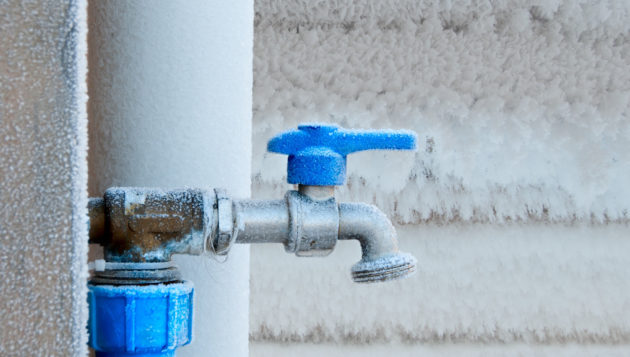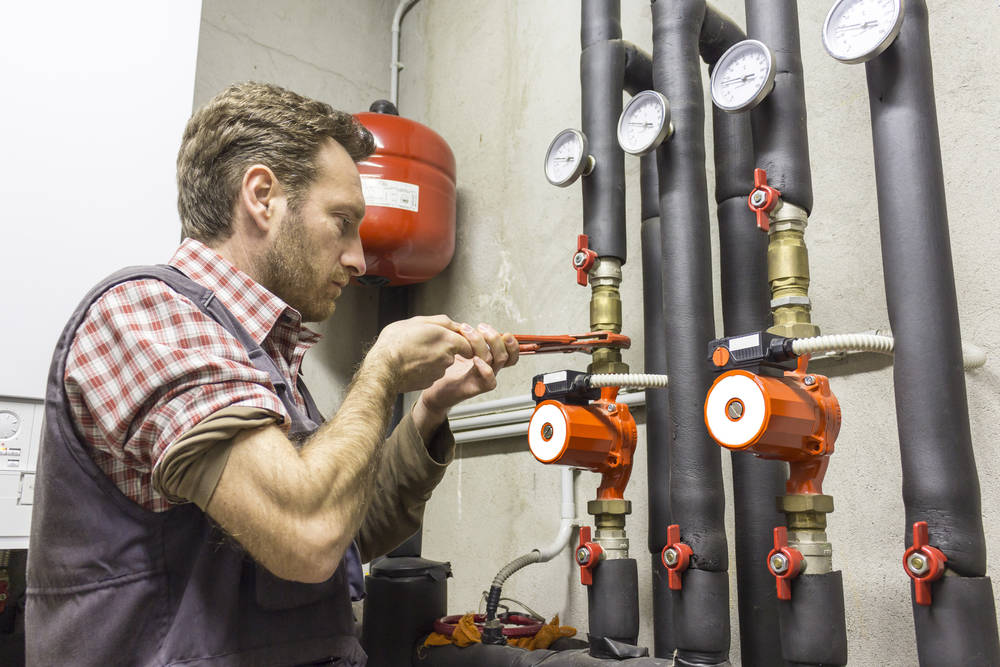Top 5 Winterizing Hacks to Prevent Your Pipes From Bursting in Cold Weather
Top 5 Winterizing Hacks to Prevent Your Pipes From Bursting in Cold Weather
Blog Article
We've stumbled upon this article pertaining to Prevent Freezing and Bursting Pipes listed below on the net and thought it made perfect sense to write about it with you over here.

All home owners that live in temperate environments must do their finest to winterize their pipelines. Failure to do so can lead to disaster like frozen, split, or burst pipes.
Turn On the Faucets
When the temperature level drops and it appears as if the icy temperature level will last, it will help to turn on your water both indoors as well as outdoors. This will maintain the water flowing via your plumbing systems. You'll end up losing gallons of water this method.
Open Up Cabinet Doors Hiding Plumbing
When it's cold outside, it would be practical to open up closet doors that are camouflaging your pipelines. For example, they could be someplace in your kitchen area or washroom. This will permit the cozy air from your heater to distribute there. As a result, you prevent these subjected pipes from cold. Doing this small method can keep your pipelines cozy and limit the possibly harmful end results of freezing temperature levels.
Take Time to Wrap Exposed Pipeline
One awesome and also simple hack to warm up frigid pipelines is to cover them with cozy towels. You can additionally use pre-soaked towels in hot water, simply don't forget to put on protective gloves to guard your hands from the heat.
Try a Hair Clothes Dryer or Heat Gun
When your pipelines are almost freezing, your dependable hair dryer or heat weapon is a godsend. If the warm towels do not aid remove any resolving ice in your pipes, bowling warm air straight into them might aid. You might finish up harmful your pipelines while trying to thaw the ice.
Shut Off Water When Pipelines are Frozen
If you discover that your pipelines are entirely icy or practically nearing that phase, turn off the main water valve promptly. You will normally discover this in your basement or laundry room near the heating system or the front wall closest to the street. Transform it off as soon as possible to prevent additional damages.
Do not fail to remember to shut exterior water resources, as well, such as your hookup for the yard home. Doing this will stop added water from filling up your plumbing system. With even more water, even more ice will certainly stack up, which will ultimately lead to rupture pipelines. It is best to call a specialist plumber for an examination if you are unclear about the state of your pipes this wintertime. Taking this positive strategy can conserve you countless dollars out of commission.
All home owners that live in pleasant climates need to do their finest to winterize their pipelines. Failing to do so can mean disaster like icy, broken, or ruptured pipelines. If the warm towels do not help displace any settling ice in your pipelines, bowling hot air directly right into them might help. Transform off the primary water shutoff right away if you observe that your pipes are totally frozen or virtually nearing that phase. With even more water, even more ice will stack up, which will at some point lead to break pipelines.
PREVENT YOUR PIPES FROM FREEZING THIS WINTER
A Leading Cause of Property Damage
When the weather is taking a deep nose dive into the cold dreary days, the risk of your pipes freezing and potentially bursting skyrockets. Unfortunately, during these cold dreary months, burst pipes are the most common denominator for property damage. The pipes that are most at the risk are those that are in areas where it is most cold in your home. For instance, pipes located in interior places such as basements, attics, and your garage. Unfortunately, that doesn’t mean that the pipes running through your cabinets or exterior walls can’t freeze. Good news, however, is that you can do things to help prevent pipes from freezing.
How to Prevent Pipes From Freezing
Once the temperature starts to drop during the winter, you should be taking the proper measures needed to ensure that your pipes stay warm and that there is circulation of water through them. Some steps that experts may recommend could go against your better judgement when it comes to saving water and heat. However, it would go without saying that when expenses are compared, damaged pipes could put a bigger dent in your wallet than a water bill.
What Can I Do?
Keep your garage door closed. This is very important, especially if you have water supply lines running through your garage. Open your kitchen and bathroom cabinets to allow warm air to circulate through them. Allow air circulation throughout your home. Keeping the interior doors open will once again allow the warm air to circulate inside your home. Ensure your thermostat is running the same temperature throughout the night and day. If you plan to be away from home during the cold months, set your temperature no lower than 55° F. This should provide enough heat to keep the pipes warm and prevent any remaining water inside the pipes from freezing. For more of a long-term solution, add insulation to attics, basement, and other crawl spaces around your home. By allowing your faucet to drip, it will alleviate pressure in the system. This is important because the pressure that is created between the blockage and the faucet can potentially cause the pipes to burst. Allowing the faucet to drip will prevent the pressure from building up, therefore keeping the pipes from bursting. Seal any cracks, openings, and crawl spaces around your home to prevent cold air from coming inside. This keeps your pipes-not to mention your home-warmer and less susceptible to issues caused by freezing temperatures. For the pipes in your home that are easily accessible, applying electrical tape to them might prevent them from freezing over. This is a quick fix, as you can apply the tape directly to the pipe. There are two options for heating tapes. One turns on and off by itself when it senses heat is needed. The other type of heating tape needs to be applied when heat is needed and removed when not necessary. If you have exposed pipes in your home, you can check this website to take a look at a few options that would be available at a shop near you.

Do you appreciate reading up on How to Prevent Frozen Pipes? Create feedback below. We will be glad to listen to your insights about this blog posting. Hoping to see you back again later on. For those who enjoyed reading our article kindly do not forget to pass it around. Thanks so much for your time invested reading it.
Call Today Report this page